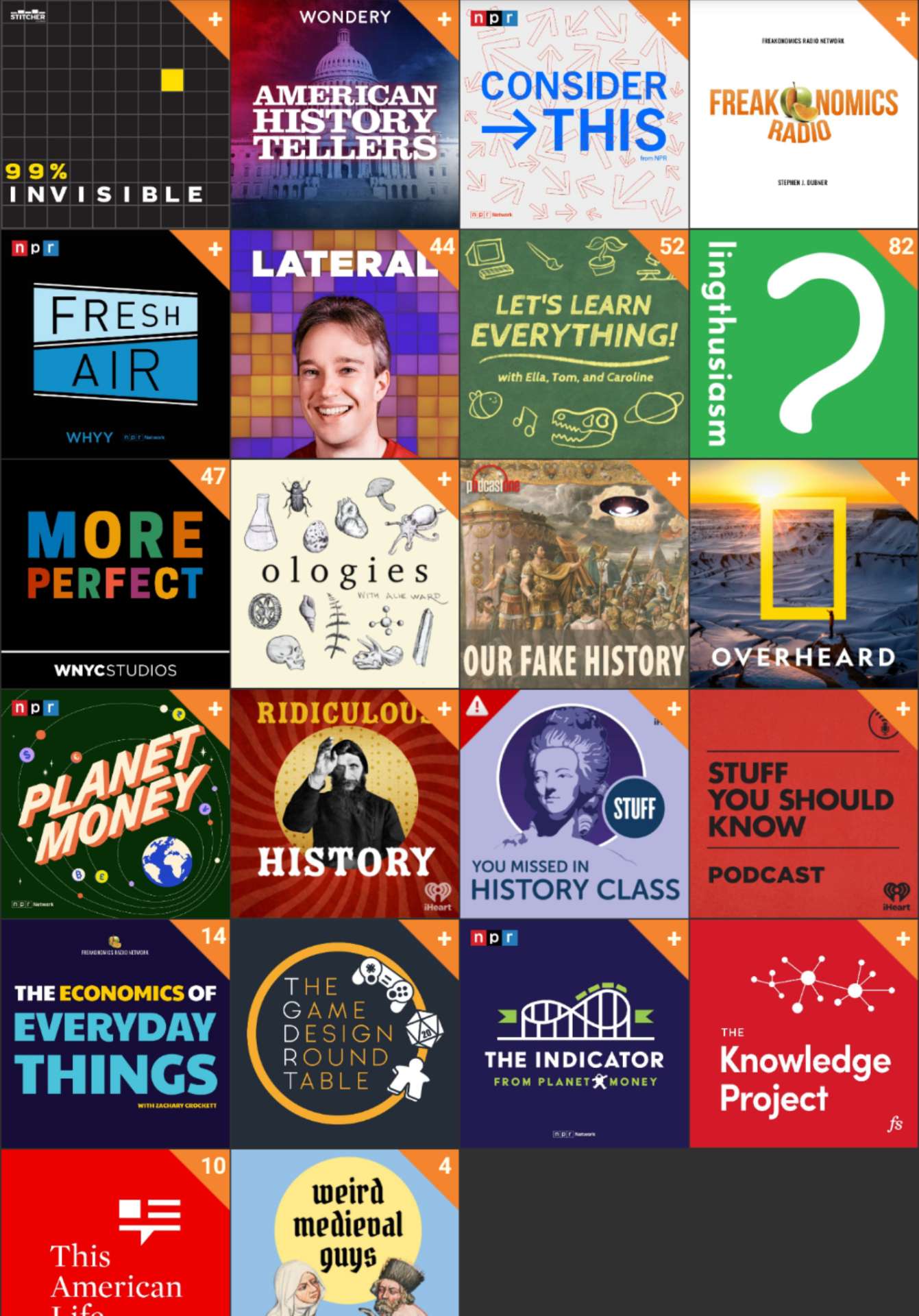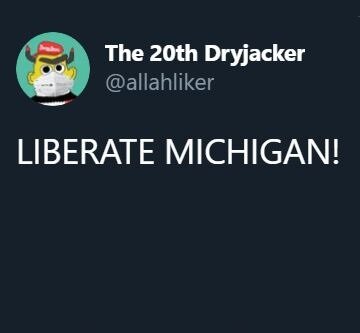Going on a cumulative 8 hour road trip with one other person who isn't too engineering/math focused (I am very STEM), but our intersection of interests includes travel, history, trivia, linguistics, literature, psychology, child development, food, economics.
If you recommend jordan peterson, joe rogan, or lex fridman you are instantly disqualified for payout. Spamming the name of a million podcasts is also not useful so i retain the right to dq someone for obvious spam.
In general, going for a lighthearted and fun vibe where we feel like we are learning things. Feel free to also recommend individual episodes of the podcast that are particularly good to help persuade.
The podcasts in this image are ones that will not pay out (as I already know about them). But also may serve as an indicator for what we might like.

If we don't end up listening to 10 recommended podcasts on the trip, the remainder will pay out based on what I personally listen to on my own later! Road trip concludes on 8/15
People are also trading
One of my favorite episodes of EconTalk by Russ Roberts. Not sure what form you prefer your podcast links but you can always search for the title in your podcast app.
Hello Internet, a two dudes talking podcast with @CGPGrey as cohost. Grey talks about his life as a robot, Brady is a caveman, they’re chalk and cheese and they have a fun time.
Because Language (the successor to Talk the Talk), a linguistics podcast with some really charismatic hosts. Wife and I are both STEM people and so it's neat to hear how folks are applying the scientific method to language.
Dan Carlin’s Hardcore History is great for road trips. Very long, engaging storytelling.
The Rest is History is also excellent, hosted by historians Tom Holland and Dominic Sandbrook as they discuss episodes and people from history with a fair amount of whimsy and entertainment that keeps me engaged and amiable on my commute.
Worlds Greatest Con. Season 1 is one big story. Season 2 is one story per episode. The order does not matter, so pick what you prefer.
Is fiction acceptable?
If so, I cannot recommend the BBC's Cabin Pressure with John Finnemore and young Benedict Cumberbatch strongly enough. It has the perfect roadtrip vibe of a small cabin crew killing time while in the air.

